Leon Sciaky - Farewell to Salonica: City at the Crossroads
Here you can read online Leon Sciaky - Farewell to Salonica: City at the Crossroads full text of the book (entire story) in english for free. Download pdf and epub, get meaning, cover and reviews about this ebook. City: Philadelphia, year: 2012, publisher: Paul Dry Books, genre: Non-fiction / History. Description of the work, (preface) as well as reviews are available. Best literature library LitArk.com created for fans of good reading and offers a wide selection of genres:
Romance novel
Science fiction
Adventure
Detective
Science
History
Home and family
Prose
Art
Politics
Computer
Non-fiction
Religion
Business
Children
Humor
Choose a favorite category and find really read worthwhile books. Enjoy immersion in the world of imagination, feel the emotions of the characters or learn something new for yourself, make an fascinating discovery.
- Book:Farewell to Salonica: City at the Crossroads
- Author:
- Publisher:Paul Dry Books
- Genre:
- Year:2012
- City:Philadelphia
- Rating:4 / 5
- Favourites:Add to favourites
- Your mark:
Farewell to Salonica: City at the Crossroads: summary, description and annotation
We offer to read an annotation, description, summary or preface (depends on what the author of the book "Farewell to Salonica: City at the Crossroads" wrote himself). If you haven't found the necessary information about the book — write in the comments, we will try to find it.
A jewel of memory.Dorothy Canfield Fisher, Book-of-the-Month Club
At the crossroads of East and West, Salonica (now Thessaloniki) was an oasis in a swirl of conflicting powers and interests, a vibrant world of varied peoples, where Leon Sciaky grew up at the turn of the twentieth century. This Paul Dry Books rediscovered classic includes many photos courtesy of Leon Sciakys son Peter, who has also written a short biographical sketch of his fathers life in America.
Farewell to Salonica is a fresh and charming book that throws a kindly light on a sector of human life unknown to most Americans.New York Times
A gallery of beautiful and quaint sketches, revealing fascinating aspects of civilization in a strange city where East met West and the ancient past met the futureIt creates an atmosphere of expectation and wonder and enjoyment. Most of all, an atmosphere of living.Christian Science Monitor
An altogether charming book, so simply and truthfully writtenThe Salonica one reads about is not only a fascinating and complex city in which many national and cultural strains run side by side, but it is a critical city of Aegean politicsThe breakdown of the Turkish Empire and its consequences for Balkan affairs are better understood when one has read this book. But it is not the political value of the book that should be emphasized so much as its quiet charm, its unpretentious and easy portrayal of a cultural pattern through an account of an engaging familyA warm and softly luminous book.The Nation
This is a story of one mans intensely happy boyhood, set against the politically seething years at the turn of the century in the ever-coveted prize city of the Balkans, Salonicawritten in a charming and effortless manner.Philadelphia Inquirer
For the gift of a happy youth, Mr. Sciaky has repaid his city handsomelyit recalls Rebecca Wests Black Lamb and Grey FalconIt is an intensely personal story, yet so completely was [the young Sciaky] of his time and place that it is also the story of Salonica in the final phase of its existence; for the city that Sciaky knew, largely dominated by its 70,000 Spanish Jews, has goneThe author has made Salonica a living town, peopled by men and women of flesh and blood, people with all the human faults and weaknesses, but also with the lovable qualities that may be found in humanity everywhere by the man with skill to pick them outNew York Herald Tribune
A charming portrait of an era.Honolulu Advertiser
This picture of a Jewish childhood among rich merchants in Salonica has a glow, the radiant sunshine of a protected childhood.Chicago Sun
Leon Sciaky was born in 1894, when the Turkish flag still waved over Salonica. His family left their beloved but turbulent homeland in 1915, settling in New York City. Sciaky lived in Americamainly upstate New Yorkwith his wife, Frances, and son until his death in 1958. He taught at a number of progressive schools and camps and, in his last years, owned and operated a school and camp with Frances.
Leon Sciaky: author's other books
Who wrote Farewell to Salonica: City at the Crossroads? Find out the surname, the name of the author of the book and a list of all author's works by series.

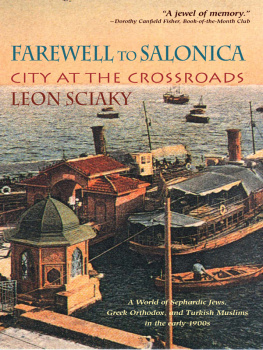
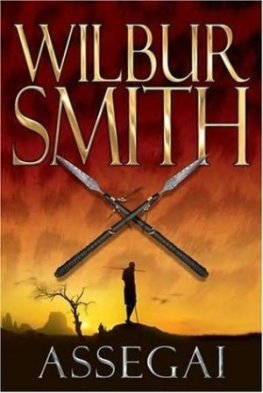

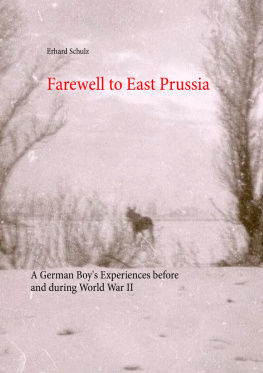






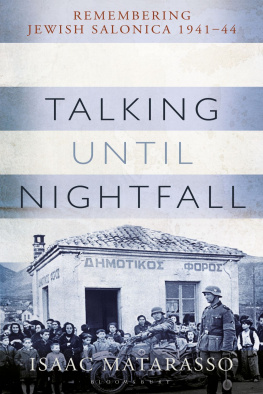
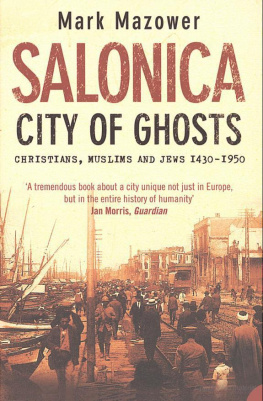



 (Greece)Social life and customs. 6. TurkeyHistory. I. Title.
(Greece)Social life and customs. 6. TurkeyHistory. I. Title.
